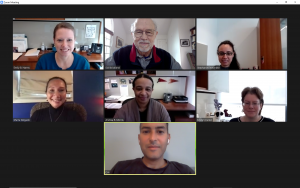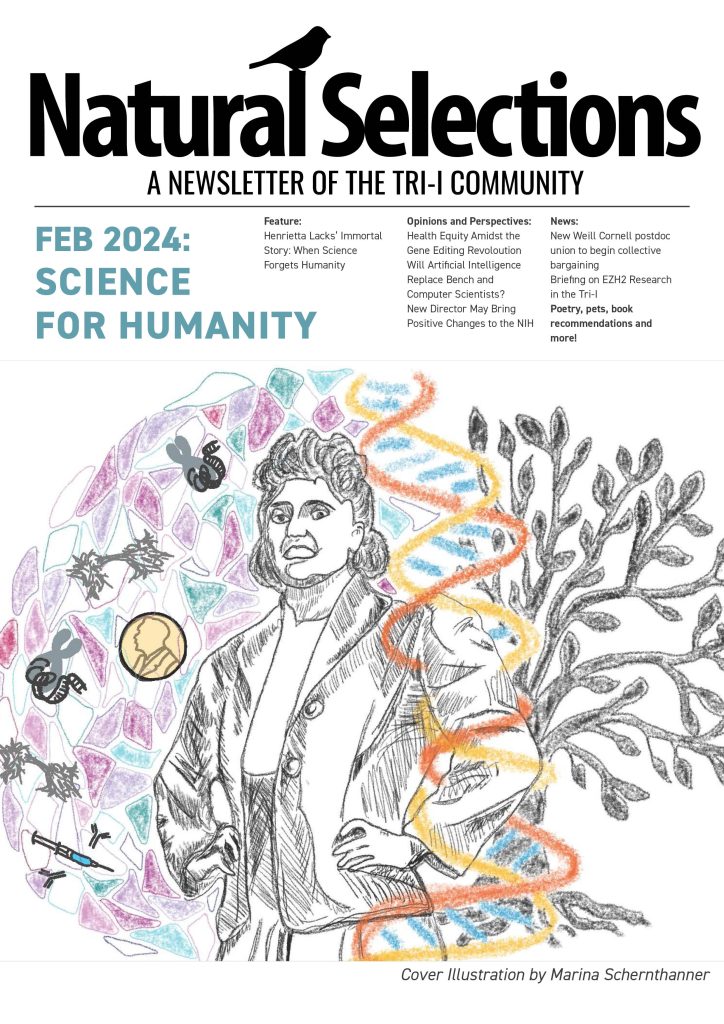Audrey Goldfarb
Flexibility and individualized support are major strengths of Rockefeller’s graduate program and have been especially beneficial to students in 2020. The Dean’s Office is one of Rockefeller’s most valuable resources for students. Dr. Emily Harms, the Senior Associate Dean for Graduate Studies, discussed her experience supporting the student body this year.

Harms and her colleagues in the Dean’s Office played an invaluable role in mitigating the impact of this past year’s extraordinary events. “We thought our fundamental responsibility was to provide support to students and postdocs professionally and personally,” she said. “To try to alleviate as much stress as possible by being flexible and understanding of individual circumstances.”
Harms said that many students expressed concerns about meeting deadlines after campus shut down. Almost immediately, the Dean’s Office suspended automatic email reminders for Faculty Advisory Committee meetings and other deadlines. Harms and Dr. Sid Strickland, Dean of Graduate and Postgraduate Studies, sent an email in May to reassure the student body that nearly all deadlines would be flexible and individual circumstances would be taken into account. “As we heard from students about things that were stressful to them, we tried to be very clear about expectations and flexibility,” Harms said. “People could come to talk to us about individual issues at any time.”
The Dean’s Office was proactive in making sure students were set up to manage their time most effectively. For one, they shuffled the curriculum to shift some fall courses to the summer, when labs were at limited capacity. Harms said students appreciated the opportunity to focus on coursework while stuck at home.
“I also think that people just need to take time for their personal wellness,” Harms said. The Dean’s Office discussed strategies with Rockefeller’s mental health providers, in order to better advise students who were struggling.
As the year progressed, discussions and concerns expanded beyond the pandemic to include the movement for racial justice and the divisive presidential election. Harms and her colleagues are heavily involved in diversity, equity, inclusion, and justice initiatives on campus, many of which are student-led and developing rapidly. “I think it’s great that it’s becoming part of the fabric of university operations and our day-to-day discussions, which it should be,” Harms said.
“There are a lot of committees doing work behind the scenes to work on increasing diversity and inclusion at Rockefeller,” Harms said. For example, the University is seriously considering hiring a Chief Diversity Officer.
It shouldn’t come as a surprise that the Dean’s Office was set up to accommodate unique situations and difficulties in 2020, because this was also their pre-pandemic policy. “Because of our small size, we have the luxury of being able to deal with circumstances on a case-by-case basis,” Harms said.
This year has highlighted, not changed, the care with which Rockefeller supports its students, postdocs, and staff. “What the last year has shown me is that one of the things I value most about Rockefeller is the sense of community and support for one another,” Harms said. “I feel grateful to work at an institution where people value the truth and have each other’s backs during challenging times.”

